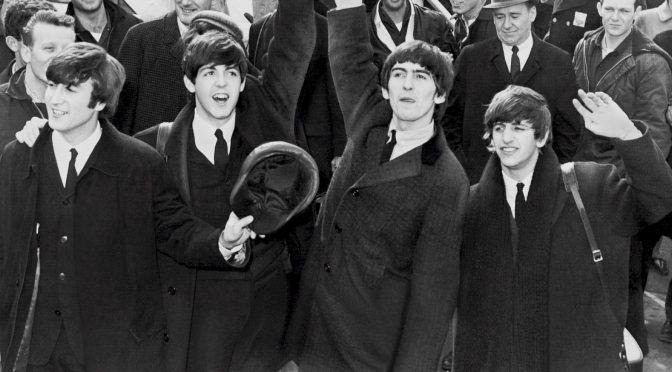The Newman University History Department presents Erin Weber, author of “Lennon vs. McCartney: How Beatles History was Written and Re-Written,” at 7 p.m. Thursday, Feb. 9 in the Dugan-Gorges Conference Center. The event is free and open to the public.
The presentation will focus on a historical methods examination of one of the two Beatles songs that Lennon and McCartney directly disputed primary authorship of. The talk will also focus on their partnership, and how they both influenced how Beatles’ history was written.
Weber explained that the article and her presentation grew from a book she wrote.
“The book is The Beatles and the Historians. My publisher chose that title, and that book is really more of an overview of how Beatles’ history has been written over time, the biases, errors, and mistakes within them, and also some of the very valuable works that have been written on the band. My presentation is mainly going to focus much more on that one dispute over that song.”
Weber said her book took about three years to write.

Weber has been teaching at Newman for seven and a half years as an adjunct instructor in American History. She is from Wichita, but grew up in Augusta, Kan., and is a 2003 graduate of Newman.
“My book, which was published last April, is a wider view of Beatles’ historiography from the early 1960s until the present day,” said Weber. A historiography, according to Merriam-Webster Dictionary, is “the writing of history; especially the writing of history based on the critical examination of sources, the selection of particulars from the authentic materials, and the synthesis of particulars into a narrative that will stand the test of critical methods.”
“In addition to writing the book,” Weber went on to say, “I have been going to conferences, presenting papers. I’m going to present a paper at a conference in June at the University of Michigan for the 50th anniversary of the release of the ‘Sgt. Pepper’ album, and so I am going to give a presentation discussing the historiography of ‘Sgt. Pepper.'”
When asked what her inspiration was as a writer, Weber said, “As an undergrad here [at Newman] I took Historical Methods from Cheryl Golden and from John McCormick, and they were teaching students how to analyze what they read to determine its accuracy and credibility, and not just to swallow everything but to see whether it’s biased, or what the agenda was, why it was created, etc.”
Weber said after she took that class she had read a biography of John Lennon and was “appalled at the complete lack of objectivity that was coming from the author and the complete lack of standards.” She said the book did not include a bibliography so she could fact check what she was reading. This frustration is what inspired her to write her book.
“So then I started reading through more Beatles books and discovered that a lot of them had the same issues,” she said. “I decided, ‘Well, somebody needs to sort through all this,’ and nobody had ever written a historiography of the Beatles before. Academic examinations of [the Beatles] tend to focus more on the music or an analysis of their lyrics coming from English professors and poets, so historians haven’t really taken a long hard look at the Beatles.”
Weber said she wants her audience at the presentation to learn to evaluate information fed to them.
“A lot of Beatles’ historiography has to deal with mass media,” she said. “You’re getting interviews from Rolling Stone or you’re getting televised interviews. The Beatles were very aware of how they could shape their own narratives by manipulating the media and all of the Beatles did that at certain times. So, what I would hope is for the audience to, again, come away and question, or at least analyze, a lot of the information that we come across every day from the computers, the televisions, and everywhere, and to just think, ‘Should I trust what this source is telling me?’ and also to realize the Beatles’ historiography is more complex than some of the narratives would tell you.”


